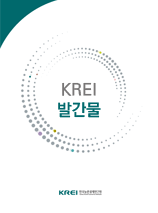


This paper aims to summarize the main steps and experiences of the agricultural transformation process in Germany since 1989 when the Eastern part of the country embarked on a transition from a socialist central-planning economy to a market economic system. At some stages it is referred to the trans...
This paper aims to summarize the main steps and experiences of the agricultural transformation process in Germany since 1989 when the Eastern part of the country embarked on a transition from a socialist central-planning economy to a market economic system. At some stages it is referred to the transformation process of other countries, in general of Central and Eastern Europe (CEEC). The paper will outline the major steps and consequences of agricultural transformation. A gradual approach of agricultural transformation and adjustment to a market economic system should be adopted and a big bang avoided for North Korea. In a market economy system the government has to give up any role to guide and manage the economy including the agricultural sector. However, it has to provide a sound legal framework which ensures the rights and obligations of private individuals and companies in a fair manner. In addition, while the state is converting the economy from a planning to a market economic system, it has to support the people to get used to this new system over a transitional period.
KREI의 출판물은 판매 대행사 (정부간행물판매센터)와 아래 서점에서 구입 하실 수 있습니다.
| 교보문고 | http://www.kyobobook.co.kr/ |
|---|---|
| 영풍문고 | http://www.ypbooks.co.kr/ |
| 알라딘 | http://www.aladin.co.kr/ |
| 상세정보 조회 | 좋아요 | 다운로드 | 스크랩 | SNS공유 |
|---|---|---|---|---|
| 10832 | 0 | 3 | 0 | 0 |